We have a conviction at Quartz that in the age of online journalism, two kinds of things do particularly well: Short, punchy posts that you can read in a flash and tell you one memorable thing, and deeply researched or reported articles that really make you understand an issue in a new way. Here, in no particular order, is a selection of the latter—a dozen of our best pieces of 2014.
1. What fonts tell us about the economics of the internet
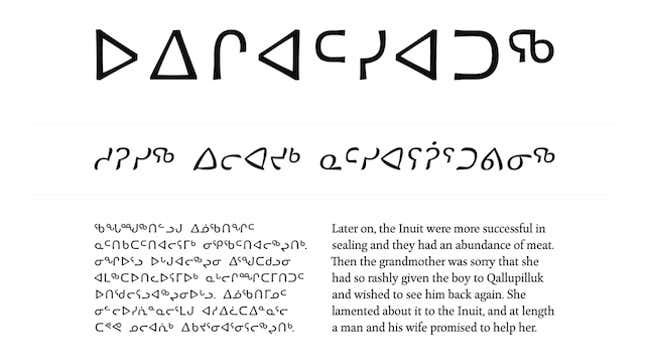
Fonts are a kind of proxy for economic development, explained Nikhil Sonnad: As people get better internet connections and more spending power, they start to demand better type design. And in a sign of the internet’s reach, we’re finally starting to see some really nice, and sometimes quite obscure, non-Latin fonts.
2. The small-town Irish bureaucrat responsible for a billion people’s privacy
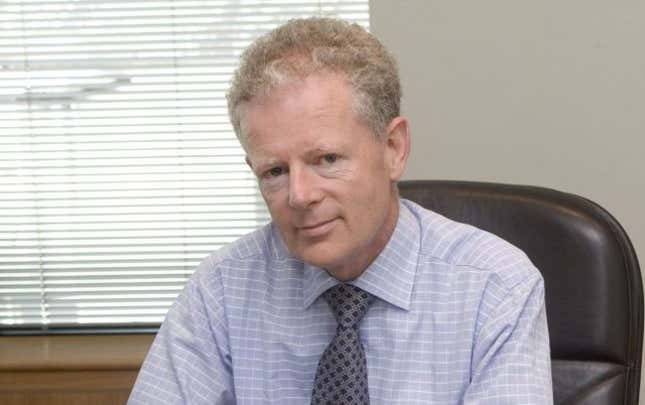
When we published this story, Billy Hawkes was 62 and worked out of a little office next to a convenience store in a small Irish town. Leo Mirani related how, thanks to a mix of history, economics and bureaucratic quirks, he had become the regulator with the most influence over how companies safeguard data privacy in Europe—and not everyone is pleased. (Since then, Hawkes has retired and the office is in the process of moving to Dublin.)
3. A final message for Ariel Sharon

In January Ariel Sharon, who orchestrated Israel’s “disengagement” from Gaza as prime minister in 2005, died after eight years in a coma. Gideon Lichfield, who visited his religious settler cousins in Gaza before they were forcibly evacuated, caught up with them to find out what they would have said to Sharon before he died.
4. The economic case for paternity leave

Giving mothers plenty of time off to raise kids is considered the enlightened thing to do these days. Gwynn Guilford produced the definitive argument for why economies worried about a shrinking workforce should give less maternity leave, not more, but get dads to take more time off instead—and why most incentives for them to do so aren’t sufficient.
5. Why Greece has a truly absurd number of pharmacists
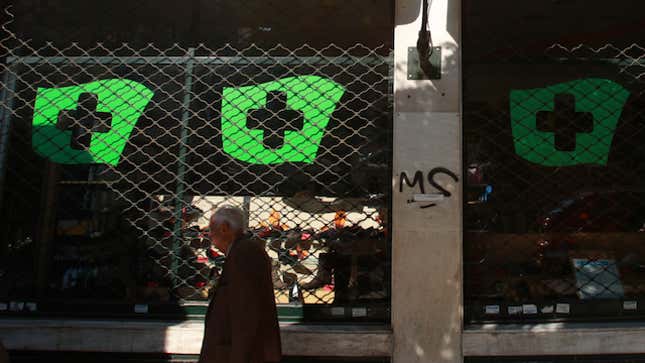
Greece has 17 times as many druggists as Denmark. The country’s debtors want them culled. In an absorbing case study of how lenders like the IMF can be blind to a country’s economic realities, Matt Phillips analyzed the strange economic policy that produced this avalanche of apothecaries, and argued that Greece should be allowed to keep them.
6. The world’s biggest water-transfer project, and its discontents
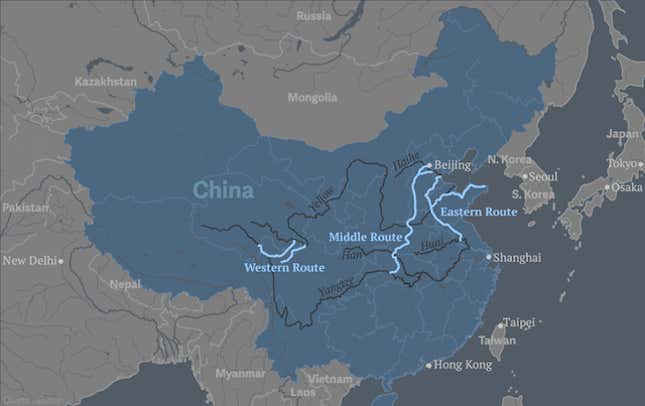
To solve water shortages in China’s crowded northeast, the country is building a network of pipes and aqueducts that will pump a River Thames-worth of water across 4,300 kilometers (2,700 miles). After taking a trip through China’s heartland, Lily Kuo argued that the project that seems to epitomize the Communist government’s awesome power in fact highlights its weakness—its inability to impose better water husbandry—and will also make life worse for hundreds of thousands of displaced people.
7. Lessons from a 600-year-old shareholding company
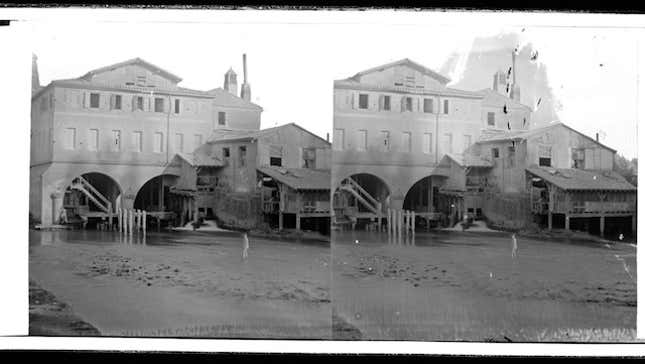
People think of the Dutch East India Company as the first modern corporation, but a French mill had a board of directors and COO over a century earlier. Max Nisen looked at what we can learn from centuries of data left by the surprisingly rational shareholders of the Société des Moulins de Bazacle.
8. How SpaceX grew up
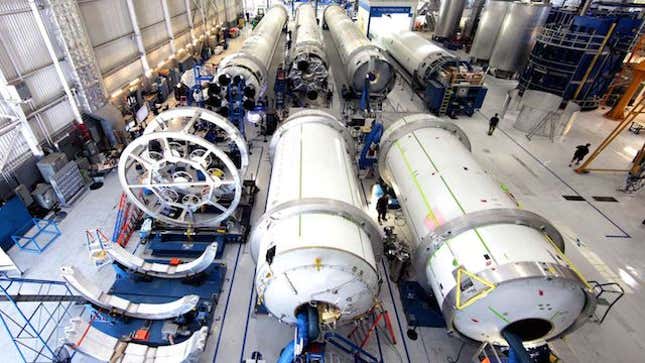
What Elon Musk started as a vanity project after making his first millions has disrupted Boeing, leapfrogged NASA, and become, quite possibly, America’s best hope for remaining a serious spacefaring nation. Tim Fernholz charted the company’s rise through failed launches, funding scrambles and cultural clashes.
9. The depth of the Modi effect

Since Indian independence, most of Mitra Kalita’s extended family had been staunch supporters of the Congress party. Yet when she went back there for this year’s elections, she found many of them backing the BJP’s Narendra Modi. Through keenly observed, subtle changes in her cousins’ behavior, she traced the deeper change in the national psyche that propelled Modi to power.
10. How Angela Merkel rewrote Germany’s relationship with Russia
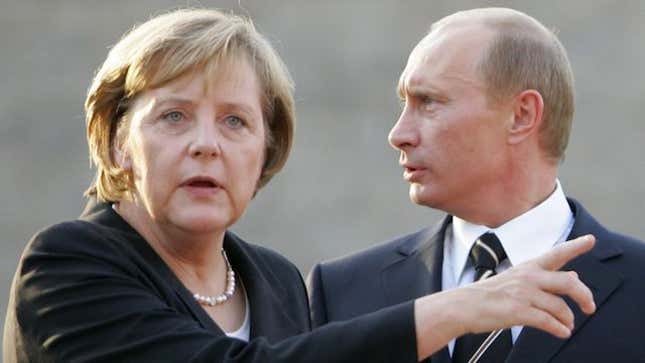
The chancellor grew up in East Germany and speaks fluent Russian, but she has quietly shed her predecessors’ chummy closeness with Russian leaders. In a fine study of the often unseen levers of diplomacy, Jason Karaian explored how Merkel shifted Germany’s doctrine of “business as usual under almost any circumstances” into a tougher insistence on European unity and international law.
11. The future of TV is looking pretty great

It will have “personal TV subscriptions,” be cheaper (though not that cheap), be better organized, and those horrendous remote controls that nobody can operate will go away. As the American TV industry slowly goes through its process of continental breakup and realignment, Zachary M. Seward peered over the horizon at how we’ll be watching a few years from now.
12. How the internet actually works
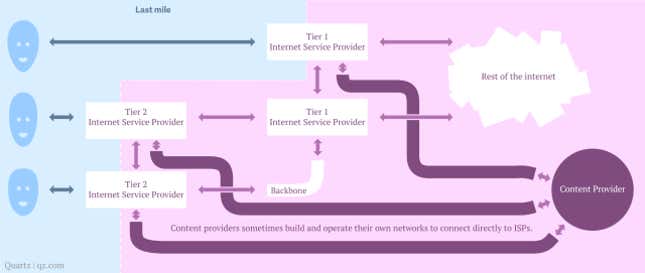
Whom do you blame when your connection is slow? That’s a very hard question to answer. David Yanofsky and Tim Fernholz made this illustrated explainer about the series of tubes that is the internet’s backbone and how the companies that control them jockey for advantage—and why, when your Netflix freezes up, it could really be anybody’s fault.
